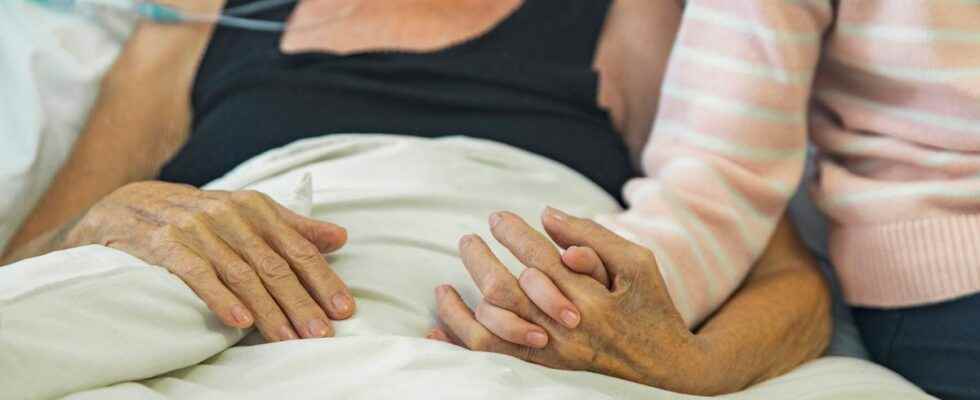Published on
Updated
Reading 3 mins.
Started on December 9, the Citizens’ Convention on the end of life will not only address the question of assisted suicide. Reinforcement and the use of palliative care will also be at the heart of the debates, especially since two-thirds of French people who need it do not have access to it.
From this Friday, December 9 and for about 6 months, 150 French people drawn by lot will compare their opinions in a citizens’ convention on the end of life, to submit their conclusion, that of the French people, to the government. The goal? Issue a thoughtful opinion on whether or not to change the Claeys-Leonetti law, which prohibits euthanasia and assisted suicide but strengthens access to palliative care. A debate that divides, as much in families as in the medical profession and the support of people who are suffering and/or at the end of life. And for good reason: this access to palliative care remains very unequal on French soil.
Only 30% of people who need palliative care actually receive it
In France, out of 600,000 deaths on average per year, 300,000 could have been eligible to receive palliative care (the other 300,000 are deaths without suffering or which occur unexpectedly) but only 100,000 people actually have access to it. No wonder when you know that 26 departments have no palliative care units at all. For Alexis Burnod, head doctor of palliative care at the Institut Curie, contacted by Doctissimo, general awareness of palliative culture is essential, even before talking about assisted suicide:
“What is needed above all today is access throughout the country to palliative care, thanks to the creation of units in the departments that do not have them, a massive increase in training on taking in charge of pain and end of life, for all caregivers, with compulsory internships in oncology for example. This will also involve raising the awareness of each of us, because for those who want to end it today, it’s not just a question of pain, it’s also the way in which we are considered, supported and accompanied when we is sick, disabled, in pain… So it concerns relatives, family, neighbours”
A lack of access that promotes the issue of assisted suicide?
It is difficult to talk about palliative care today without mentioning assisted suicide, requested by some French people. Can the lack of one favor the arrival of the other? For the specialist, there are two factors:
“There are indeed people who are suffering, who have a serious illness and who, depending on the region where they live, do not have the access they deserve to end-of-life care. These people may indeed think that assisted suicide will be a way of dying. But there are also people who today say that the issue is not death which is near, but feel old, no longer find comfort, no longer support a disability, and decide that they would like some help. to suicide. Facilitating suicide is a strong current that we feel a lot at the moment”.
A societal demand more than medical according to the doctor, who calls for caution on this delicate question of the assisted end of life.
“It’s not about saying life to the end at all costs, but let’s also look at the countries where it’s legalized, it’s nothing rosy. And we quickly realize, in Belgium, in Canada, that the fact of allowing suicide quickly becomes uncontrollable: beyond the people suffering because of the disease, they are people with disabilities, with failing mental health, or even who are simply too old, who resort to assisted suicide. Prudence justifies taking a little time and seeing that it is not all ideal abroad”.
“As long as there is no access everywhere in France to palliative care, perhaps we should think twice about authorizing assisted suicide for all” tempers the specialist.
Waiting en France, 2.8 beds per 100,000 inhabitants are dedicated to caring for people at the end of life. There should be at least 5 beds per 100,000 inhabitants for everyone to have access to palliative care. A question that will undoubtedly be dissected throughout this citizens’ convention.
